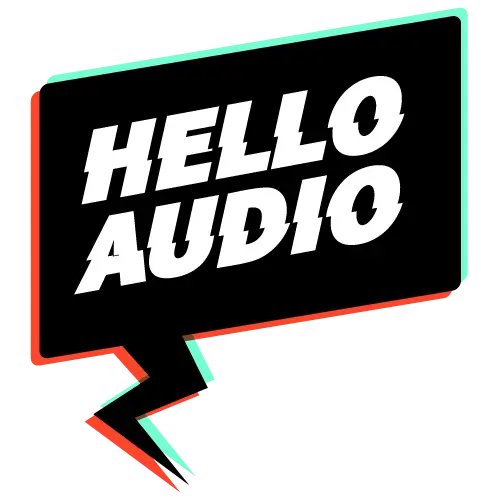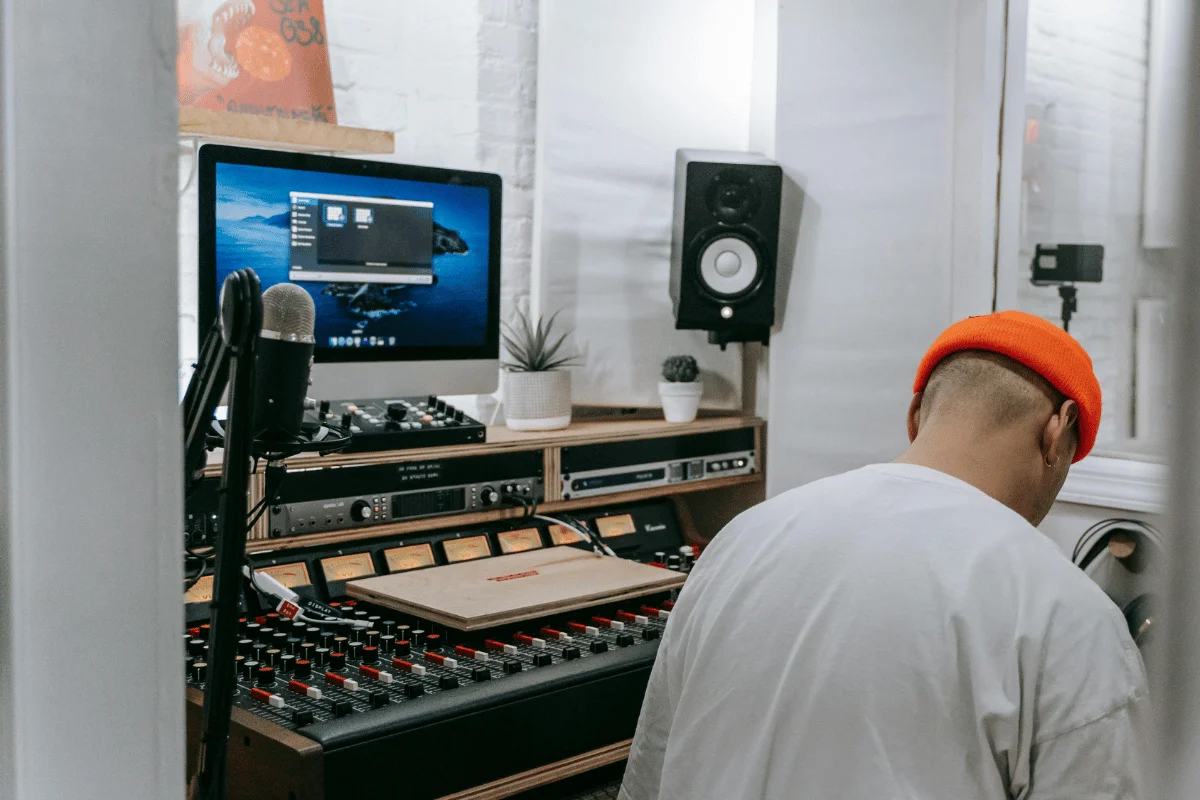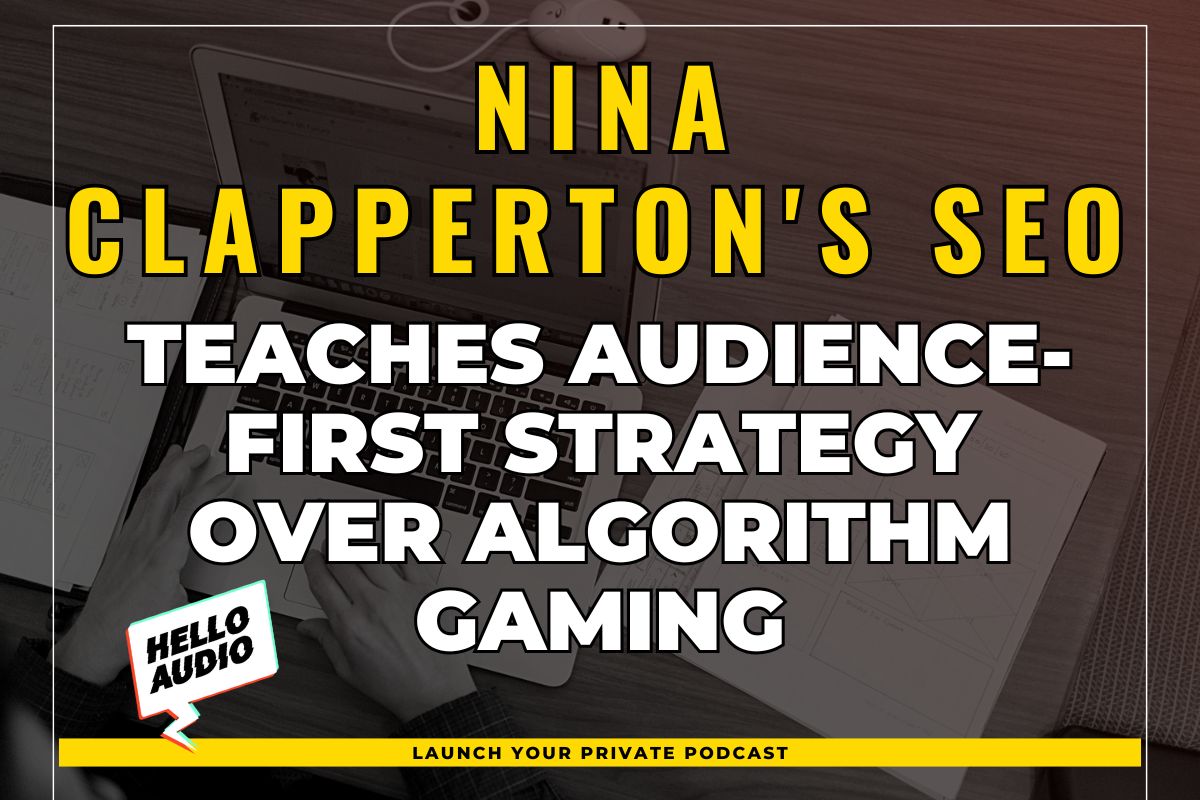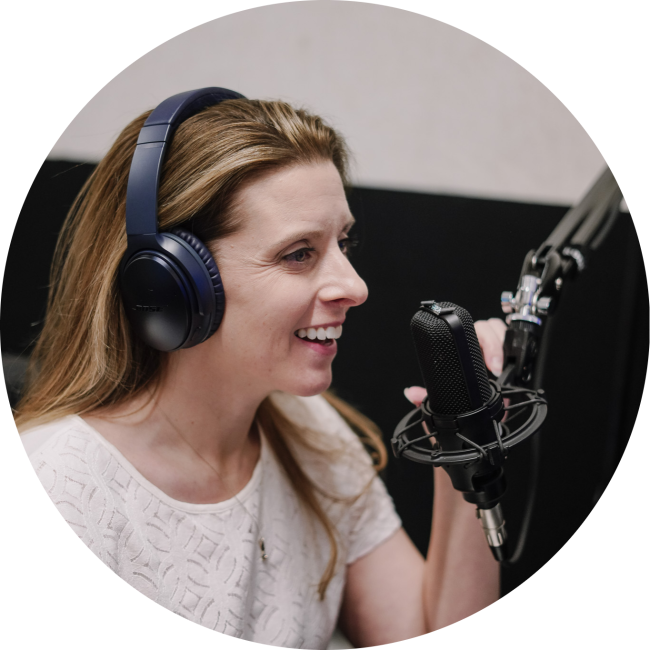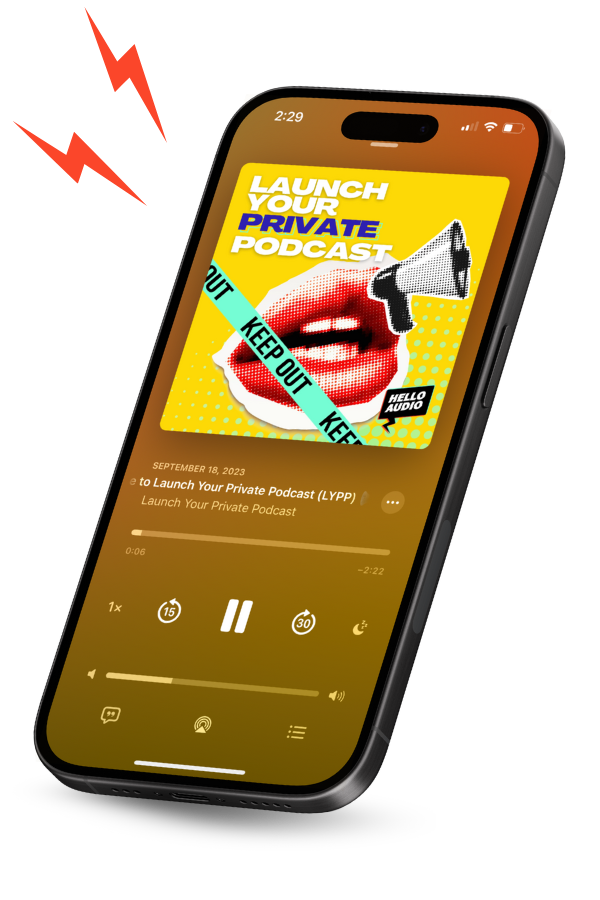With over 6 million shows listed on Spotify alone as of April 2024, it’s safe to say that podcasting is the future of audio-first entertainment.
However, what if you want to create exclusive niche content or share confidential information with handpicked audiences? This is where private podcasts come in.
It gives you a space to share information/content with only a selected few while maintaining the confidentiality and exclusivity of your group.
On that note, this blog explores the ABCs of private hosting options, covering core benefits and how they work, best use cases, and what to look for when choosing a hosting platform.
A Quick Mention!
If you want the easiest way to start your private podcast, Hello Audio has got you covered.
Our tool lets you turn your existing video and audio files—courses, coaching calls, audiobooks, and more—into private audio feeds.
Our platform automatically uploads your private podcasts to your podcast players like Apple Podcasts, Overcast, and more.
Start creating with Hello Audio—for free and turn your best content into private podcasts!
What Are Private Podcasts?
Private podcasts are a unique way to distribute your audio content to a selective audience.
These are accessible only through a special RSS feed link or password security, compared to public podcasts listed openly on major streaming platforms like Apple Podcasts, Google, and Spotify. Due to this approach, you can have complete control over their audiences and content output.
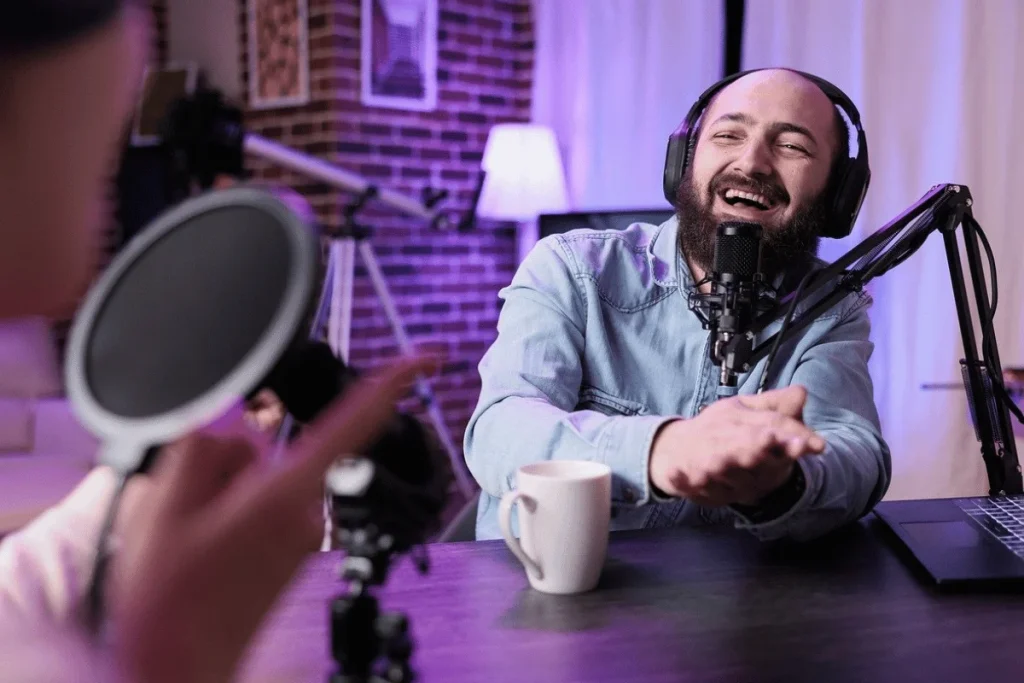
What is Podcast Hosting?
Simply put, podcast hosting is a service for storing audio recordings and distributing them to podcast platforms and apps.
The first step in creating a podcast is (obviously) recording your audio files. Once recorded, those files are uploaded to a podcast hosting provider. Why? Because the hosting platform saves your files and assigns you a unique RSS feed URL.
This RSS feed URL allows different platforms and apps to make your content easily discoverable by listeners ― and that’s why podcast hosting is important.
Do I Need a Podcast Hosting Service?
If you’re running a private podcast that isn’t targeted towards the masses, having a podcast hosting service is not absolutely mandatory.
Additionally, if you don’t have the budget, there are other cost-effective options to distribute your private podcasts as well.
For instance, you can upload audio recordings to a cloud storage (Dropbox, Google Drive) and share the link with selective audiences.
However, this method can be time-consuming and almost unmanageable. That’s why a podcast hosting service can greatly simplify the content distribution process on your behalf. Here’s how:
- Provide guest access so that select audiences can listen to your podcast.
- Keep your content password-protected to ensure only those with the correct password can listen.
- Monitor analytics to learn about audience size and play time, discover which episodes are the most well-liked, etc.
Looking for a cost-effective platform where you can create, host, and manage private podcasts on the go? Sign up for Hello Audio using our exclusive 7-day free trial offer and get started today.
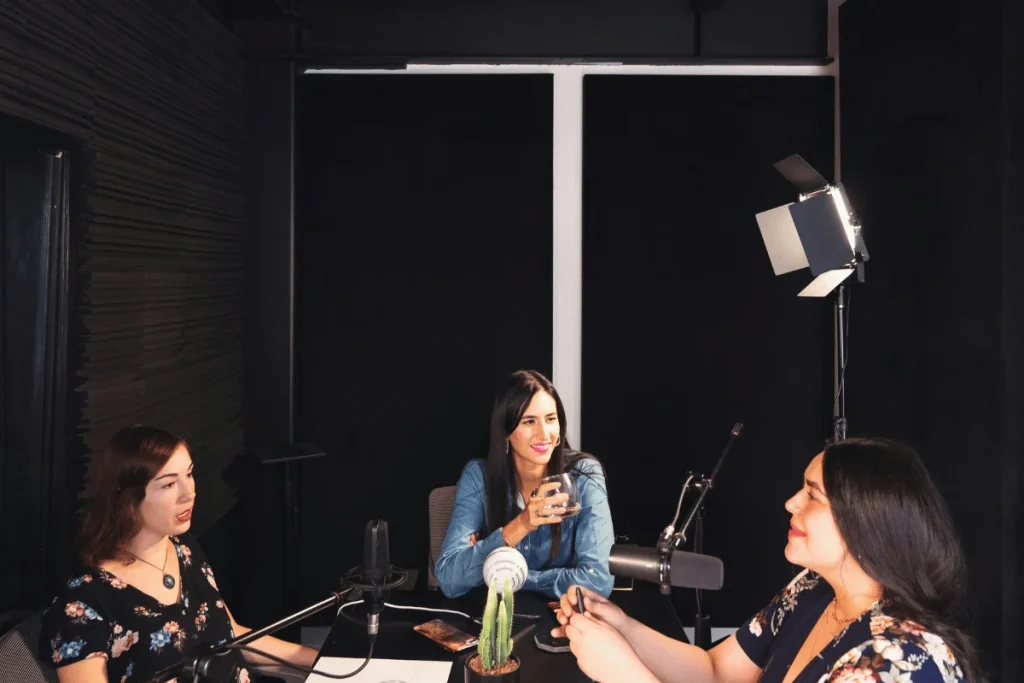
Benefits of Private Podcasts & Premium Content
Jeremy Devens, the host of “Quiet Mind Astrology,” added over $16,000 in revenue by capitalizing on his public podcast audience simply by creating a private podcast for his clients.
On that note, let’s dive deep into the reasons why you should include private podcasts in your content strategy:
Controlled Distribution of Content
Private podcasts give you complete control over who sees your content.
You can share access links privately, modify distribution lists to specific audiences, and do much more to ensure the content reaches the most relevant listeners. That’s also how you can preserve the value of premium content created for paying subscribers or online community members.
Premium, Exclusive Offerings
Private podcasts are more suitable for “premium” subscription-based models, where both content creators and patrons mutually benefit. For example, you can monetize your content and show appreciation for paid subscribers by offering exclusive interviews, early access to BTS content, etc., as rewards.
Targeted Community-Based Growth
A majority of podcast listeners will likely subscribe to “tune in to learn something new” about their areas of interest.
So, by offering specialized content targeting your audience’s interests, you can position yourself as a thought leader. For example, you can offer private podcasts on business trends or career development guidance, supplementary audio lessons for online courses, and more.
Increased Engagement
There’s an intimacy to podcasts that’s hard to find in other types of content. Speaking your mind in a human voice establishes a personal connection and builds trust with your audience.
Studies have shown that 82.4% of listeners stream podcasts more than seven hours per week. Besides, having a dedicated user base also helps generate leads through email newsletter sign-ups.

How to Use a Private RSS Feed
By using private RSS feeds, you can distribute your audio content to a specific audience in a safe and manageable way.
Here’s a step-by-step guide on how to use these feeds:
Step 1: Select a Hosting Platform
Many sites for hosting podcasts allow you to podcast privately, including Hello Audio. Remember to prioritize features like pricing, analytics, security settings, and subscriber management when choosing the right platform for your content.
Step 2: Create a Private Feed
After signing up, you’ll notice your chosen platform includes a section for generating private RSS feeds. You can create different podcast RSS feeds for various types of listeners (e.g., different feeds for free and paid membership tiers).
Step 3: Distribute the Feed
Do not publish your private RSS feed. Send it personally to the people you want to share access with. Here are some ways to distribute the feed:
- Send a welcome or onboarding email to subscribers.
- Offer it as a special bonus to your membership website (e.g., Patreon).
- Make it accessible only through a password-protected page.
Step 4: Instruct the Listeners
Give your listeners clear directions on using their favorite podcast app to subscribe to your private podcast. Note that many platforms allow creators to manually add shows by using a special RSS feed link.

Key Features of Private Podcast Hosting Platforms
What should you expect from a private hosting solution?
Check out the 5 key features that the best services have:
1. Simple User Interface
Podcast hosting sites feature a user-friendly dashboard that is easy to understand and navigate, preventing delays when sending private podcast feeds to your audience.
Also, some private podcast platforms offer live customer support if you encounter technical difficulties while uploading your feed.
2. Unique Access Control
Private hosting services often have a private link address and password control, allowing only the intended audience to access your exclusive content.
They also provide one-click controls, allowing you to manage your listeners and preserve the value of your premium content.
3. Storage and Bandwidth
Private podcast hosting companies use servers to allow you to store your files and distribute them to listening apps.
However, some sites offer limited storage on the free plan compared to Hello Audio, which provides unlimited storage on all plans. Hosting solutions allow your audience to download and stream your episodes quickly without worrying about buffering.
4. Data and Analytics
An ideal hosting platform offers analytics and statistics as part of its service, even at its free tier.
Free plans often include basic podcast stats, such as the number of downloads, listening time per episode, and the number of individual devices. Paid plans may feature advanced analytics such as listener play time and the most liked private podcasts.
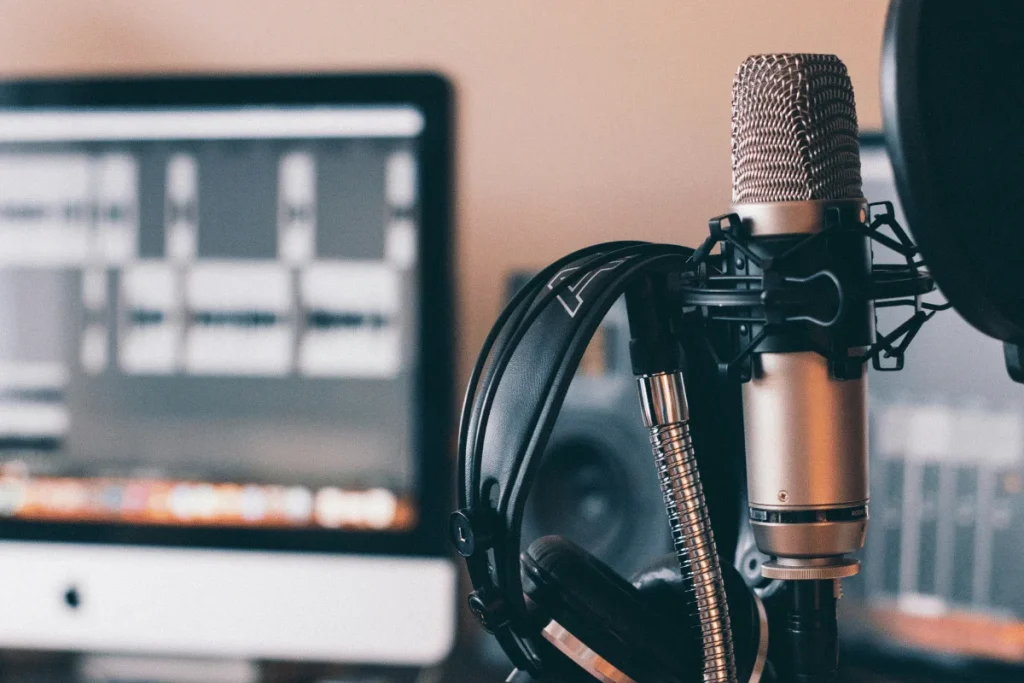
5. Automatic Distribution
You won’t have to worry about how your podcasts will reach your listeners. Most private hosting sites simplify sharing and publishing your episodes.
They provide an RSS feed link to add to podcast directories like Amazon Music, Apple Podcasts, and Spotify. When you upload a new episode, it’s automatically listed on your chosen podcast streaming platforms.
6. Integration
Some private podcast sites integrate with tools like Stripe and Zapier to streamline your workflows, allowing you to focus on the creative process rather than getting bogged down in tedious, repetitive tasks.
For example, Hello Audio’s private podcasting solution allows you to create automated workflows called ‘zaps’ that notify your email list subscribers when you upload a new episode.
6. Monetization Opportunities
Want to make money off your podcasts? Easy. Private podcasting platforms enable you to charge subscription fees for your podcasts, run ads to reach out to more people, sell your merchandise to your online audience, and more.
They also let you see how much money you make through your earnings dashboard.
7. Auto-transcription Services
Some hosting platforms automatically generate text transcripts for podcasts.
When someone searches keywords related to your content, the transcripts of your podcasts appear in search results, driving potential members to your private podcast community.
Hello Audio Tip!
While the key features of podcast hosting sound complicated, they don’t have to be.
Our platform is the best private podcast hosting solution for repurposing existing content. With Hello Audio, you can also polish your audio, transcribe, and auto-publish private audio feeds.
Our platform also allows you to access listener analytics per episode, including the average listening time, consumption rate, and more.
Book our instant demo and see our platform’s features in action!

Best Private Podcast Platforms for Creators
Looking for the right private podcast hosting platform to begin your journey? Here are some industry-leading picks to choose from:
1. Hello Audio
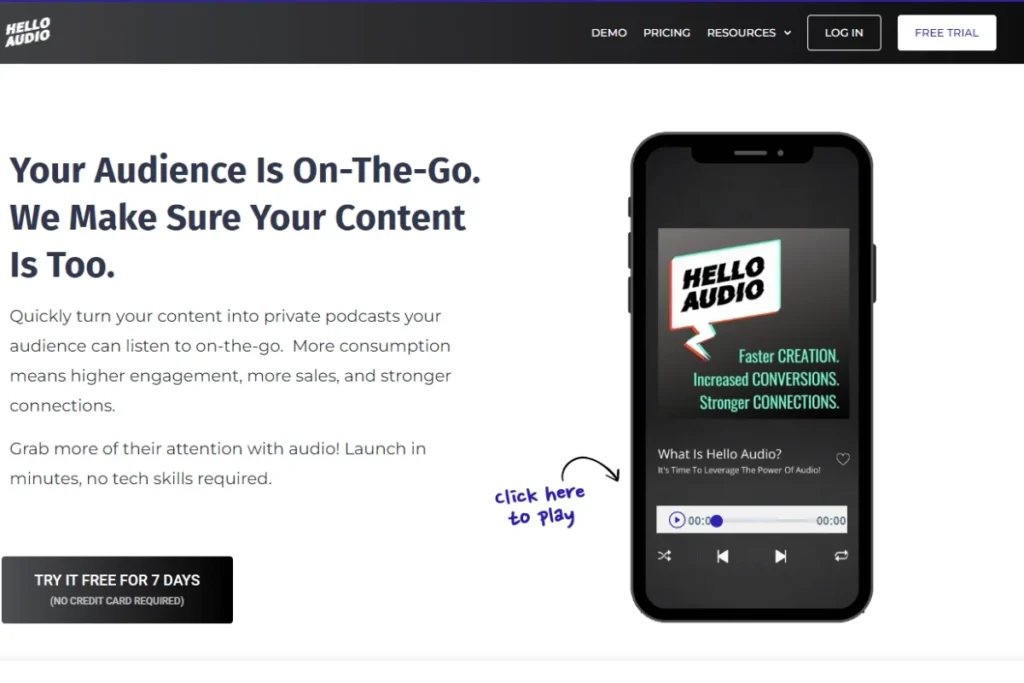
Our first pick, Hello Audio, is a leading private podcast hosting platform where content creators can create high-quality audio content from the ground up and distribute it on major streaming platforms. And the best part? You don’t need any previous technical expertise to start on this platform ― that’s how easy it is to use.
Hello Audio also provides advanced features to reach your target audiences more precisely, including automated actions based on listener behavior, dripped and expiring feeds, advanced analytics tools, etc.
Willing to give it a shot? Book an instant demo and see how you can launch your first private podcast today.
2. Buzzsprout
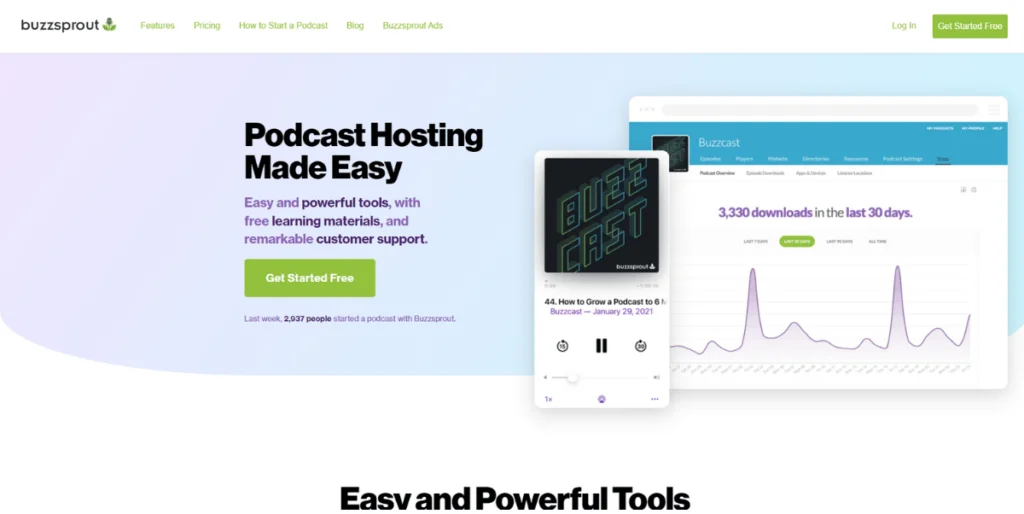
Buzzsprout, our next suggestion, is an excellent choice if you prefer an easy-to-use platform and want to handle both standard and private podcasts in a central location. It has a simple UI, strong basic functions, and can manage both public and private content delivery.
However, when it comes to profitability and flexibility, its private podcasting features appear less advanced than niche private hosting.
If you want more robust podcasting features, check out these Buzzsprout alternatives.
3. Supercast
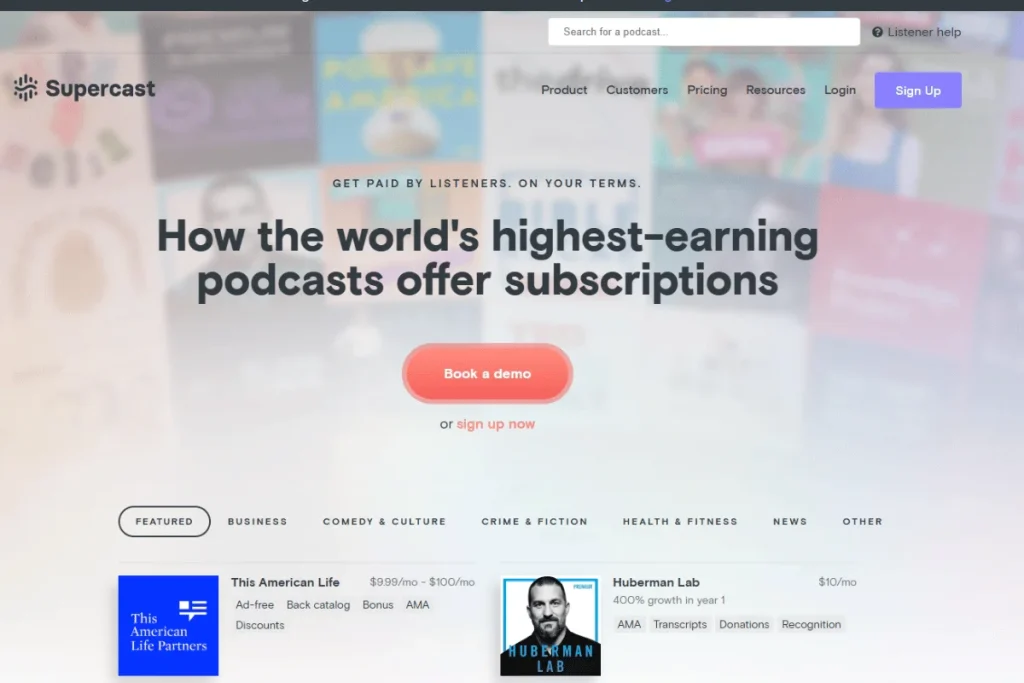
Supercast, a monetization-focused platform, specializes in generating revenue straight from your private podcast. It also has an easy setup process, seamless connectivity with your preferred podcast player for subscribers, and advanced subscription management features.
However, other platforms are a better option if you are looking for complex membership mechanics or site integrations.
4. Transistor.fm
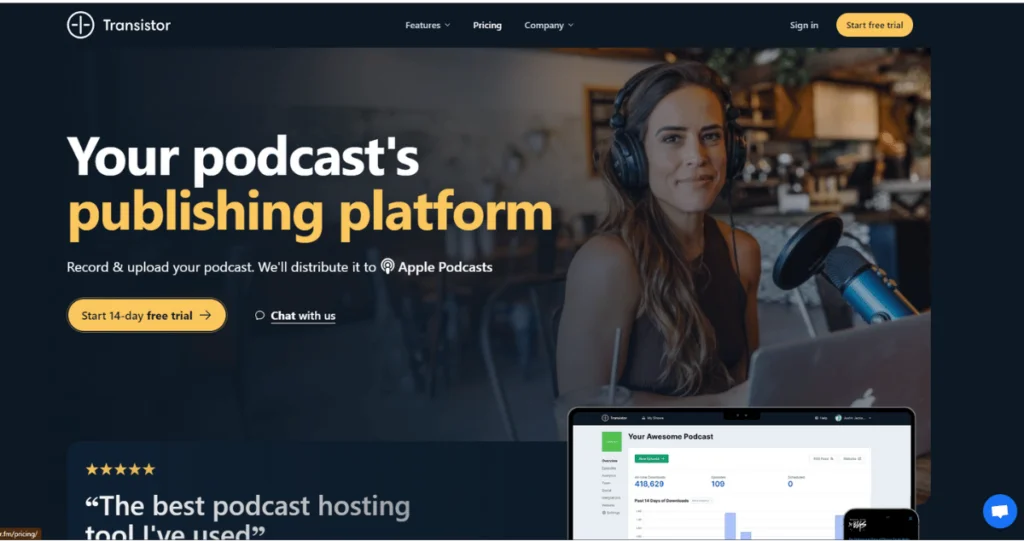
Transistor.fm is great for running a hybrid model for podcasting, as it strikes a solid mix between private and public features.
Its essential qualities include reliable podcast hosting loaded with industry-standard features, several private podcast feeds, and in-depth private show analytics. However, compared with alternatives like Hello Audio, it can seem less streamlined for private podcast setups.
5. Patreon
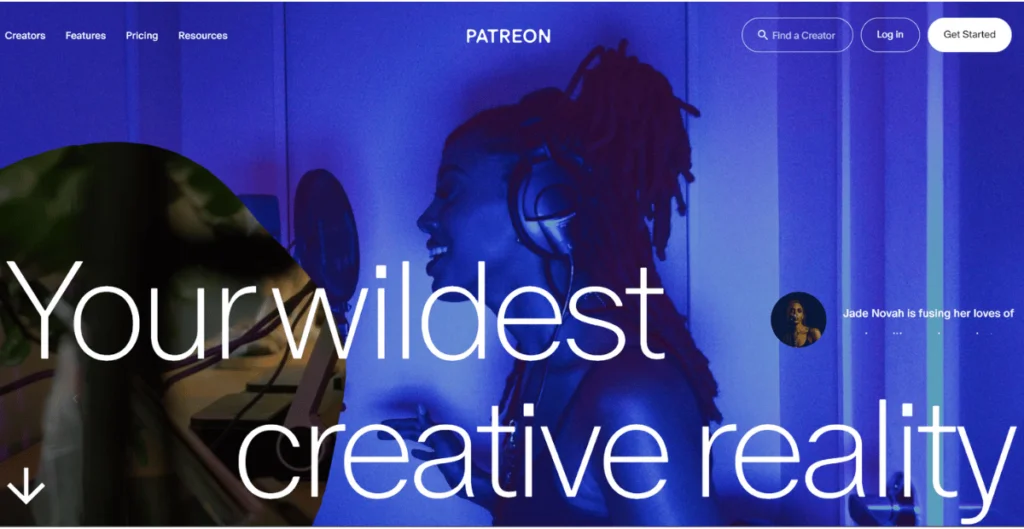
Our final pick, Patreon, is a large-scale platform where all types of creators can monetize their content. This means it’s not solely meant for podcasts.
It provides a built-in audience base, easy subscription tier management, payment processing, and community management features. Conversely, Patreon’s podcast features can fall short compared with specialized podcast hosting platforms.
How to Choose a Podcast Hosting Platform
With so many private podcast hosting platforms, selecting what’s right for you can be challenging. Instead, here’s what to look for:
Ease of Use
Having an easy-to-use interface is necessary for podcast creators who are just starting out. Uploading material, creating a private RSS feed, managing subscriber access – everything becomes effortless with the ideal platform.
Easy Monetization
If you want to sell paid private podcast subscriptions, search for platforms integrating with popular payment gateways, e.g., Stripe or PayPal. If the platform includes tools for managing subscriber tiers and memberships, that’s a green flag.
Privacy and Security
Top-tier private podcast platforms should prioritize strong security measures. For example, you should look for features like password protection, encryption to protect your recording files, granular access restrictions to limit who hears your content, and more.
Metrics and Analytics
In-depth data on listenership, demographics, and audience interaction support every content creator’s decision-making. To be precise, these analytics help better personalize your content strategy and understand your subscriber base’s listening behaviors.
Profile Customization
Lastly, the platform must allow you to personalize the look and feel of your private podcast feed to match your brand or content themes. Proper branding always helps your content come across as more professional.
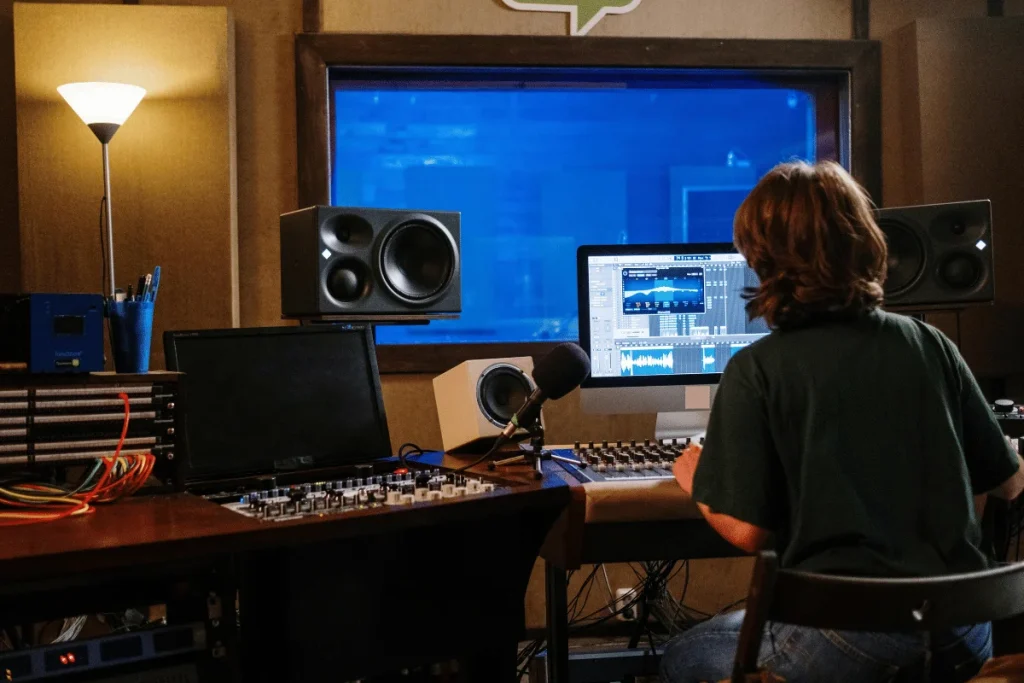
How to Create a Private Podcast Using Hello Audio
Thanks to Hello Audio’s easy-to-use interface, 70% of their new users launch their private podcasts within 24 hours.
To start yours, first sign in to your Hello Audio account and then follow these steps:
- Click “Create New Feed” and select “Private.”
- Fill in basic information, including title, author, description, and link (optional).
- Select a feed type, i.e., instant (for courses/series published at once) or date-based (for podcasts with regular releases).
- Drag your audio (or video) files into the upload section and add a podcast cover image.
- Assign a title, and once it’s ready for release, hit the “publish” button.
Your scheduled episodes will automatically go live on the specified publishing date. Ready to get started? Start your limited-time free trial today ― no credit cards required.

Challenges of Private Podcast Hosting
While there are many benefits of podcasting for businesses, you might encounter some challenges if you choose to host your podcast privately:
- Complexity When Finding a Podcast Host: Unlike public podcast hosting, which is relatively straightforward, private podcasting requires you to know how to set up secure access for listeners, manage subscriptions, and ensure seamless content delivery.
- Difficulty in Engaging the Audience and Monetizing: Maintaining meaningful interaction among private podcast listeners isn’t always easy. Your private podcast content must be exciting and resonate with the members you’re trying to reach.
- Limited Monetization: Unlike public podcasts, monetizing a private podcast is often challenging because of the restricted and exclusive audience. It often involves strategic advertising and other approaches like paid membership plans, selling merchandise, and donations.
- Managing Access Control: In private podcasts, you must balance exclusivity and accessibility. You must verify identities, manage subscriptions, and revoke access when necessary.
- Marketing: Creating great, exclusive content is not enough; you must market it. Finding and reaching your target listeners among the 100 million weekly American users can be like looking for a needle in a haystack.
- Limited Discoverability: Private podcasts restrict your list, making it difficult to expand your fan base. To build your online community, you must discover targeted advertising strategies; otherwise, reaching a wider audience can be challenging.

Best Practices for Private Podcast Hosting
Are you looking to create a thriving private podcast show?
Here are some tips to help you do just that:
1. Define Your Purpose and Audience
What is your goal? Is it to provide internal communications or to build a community? Once you know your ‘why,’ think about who your podcast talks to.
Researching your audience forms the foundation of a successful podcast, influencing everything from your content tone to your marketing strategy.
2. Choose a Suitable Format and Structure
Nobody wants to listen to the same old thing every time. Think of formats that will keep your listeners engaged. Interviews, solo chats, Q&As, and even storytelling can work wonders.
Also, remember to structure your podcast to increase listener retention. Make it easy to follow and include clear calls to action.
3. Invest in Quality Equipment
While cutting costs with podcast equipment might be tempting, don’t! The quality of your audio significantly affects your users’ experience and retention.
So, level up your podcasting by investing in headphones, recording software, and a microphone to record a studio-quality private podcast.
4. Have a Professional Recording Environment
Your recording room should be free of traffic and other noise disturbance sources. To reduce echo, your walls should be covered with foam or blankets.
Besides, have ample space to experiment with different microphone positions. Ultimately, you can produce clean recordings that require minimal edits.
5. Pick the Right Hosting Platform
Check if your podcast host has advanced analytics, automatic distribution options, payment integration systems, and a mobile app—research for a private podcasting platform that fits your needs and budget.
6. Analyze and Iterate
Keep an eye on the stats you get from your podcast hosting platform. What episodes have the most listeners? What topics resonate well with your audience? Use such insights to make your podcasts even better.
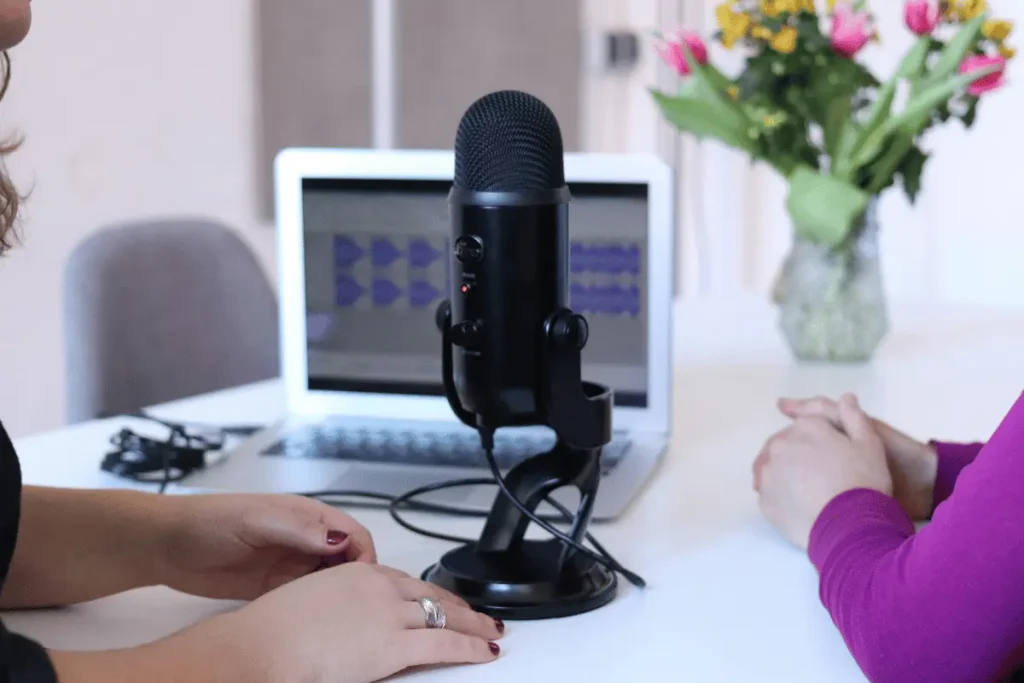
Frequently Asked Questions (FAQs)
Before we wrap up this discussion, here are some frequently asked questions about private podcast hosting, answered:
Can You Make a Private Podcast on Spotify?
No, Spotify does not allow you to host a private podcast directly. You can, however, use a private podcast hosting site and then send your private RSS feed to Spotify to be included in their catalog. Only listeners with the private link can find and hear the podcasts.
Can I Monetize a Private Podcast?
Yes! Private podcasts are a common way to monetize content.
Many private podcast hosting platforms have built-in subscription, membership, and payment processing features. This allows you to charge listeners for access to exclusive content.
What Are the Typical Costs of Private Podcast Hosting Services?
Private hosting pricing plans range from $10 to $100 per month. For example, Hello Audio’s typical costs of private podcast hosting services are:
- Starter: For $17 per month, you get 1 private channel for your private podcasts.
- Pro: $47 monthly gets you 3 private channels for your private content.
- Powerhouse: For $97, the Powerhouse plan gives you unlimited private channels for your exclusive podcasts.
Tip! Our platform lets you save up to 20% by paying for your subscription annually.
Can I Restrict Access to Certain Episodes of My Private Podcast?
Absolutely!
Hello Audio provides several ways to restrict access to specific episodes of your private podcast:
- Our platform lets you limit specific episodes using listener tags, such as ‘course buyer.’
- With our date-based feed feature, you can restrict new listeners from accessing past episodes.
- You can specify the number of days (or the time and date) after which an episode disappears automatically.
- You can revoke access to specific episodes by blocking or deleting the listeners.
Conclusion
It’s not just a fad anymore; private podcasting has grown as an effective way to gain control over your content while building deeper connections with your target audiences. Whether used for internal communications, exclusive membership benefits, or highly confidential information, their controlled structure provides distinct benefits to creators.
Hello Audio makes it easy to leverage the power of private podcasting. Our easy-to-use platform helps transform your existing content into entertaining audio in minutes, even if you’ve never created a podcast before.
So, why wait? Start your private podcast hosting journey with Hello Audio. Sign up for our 7-day free trial today.

